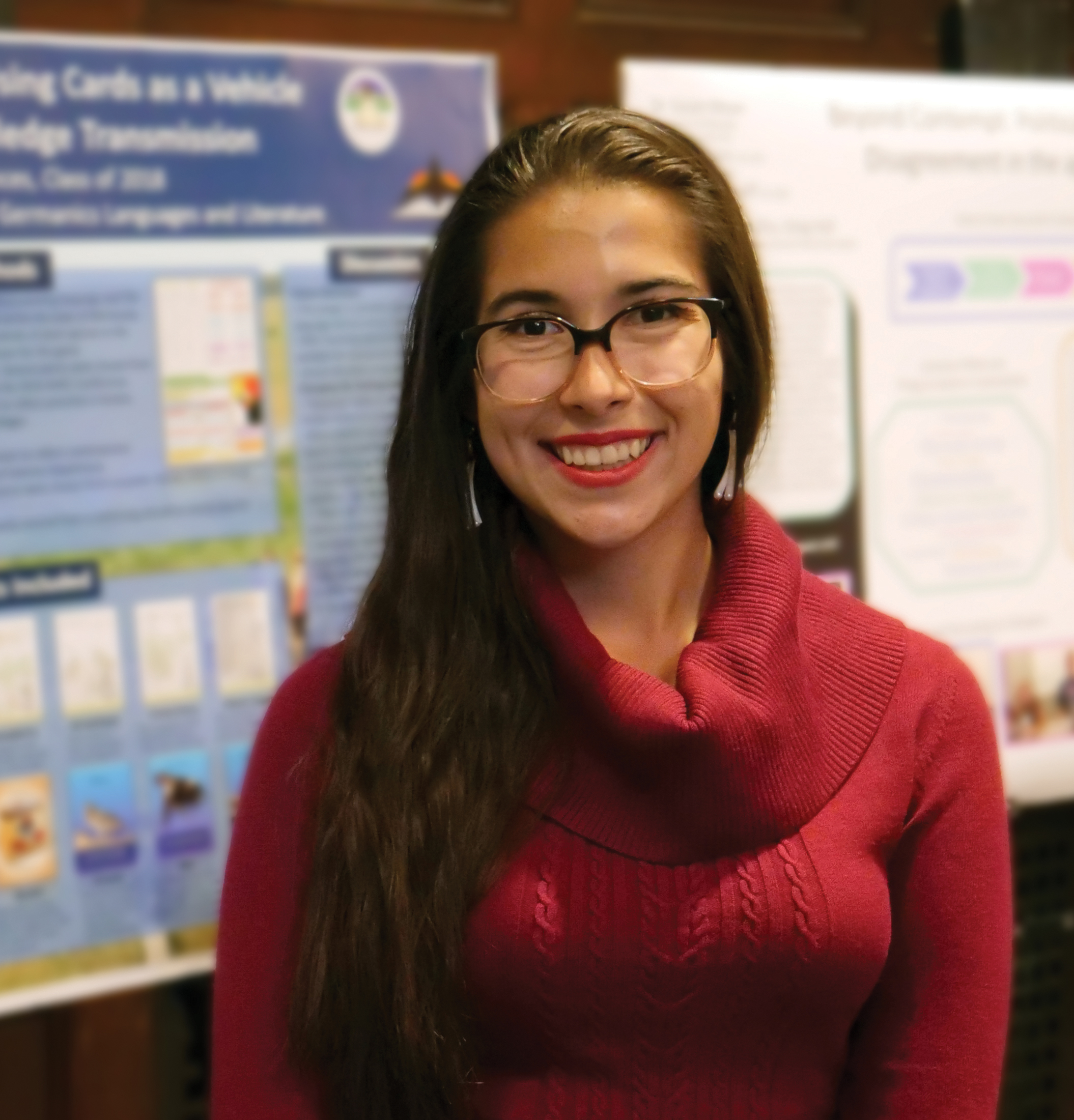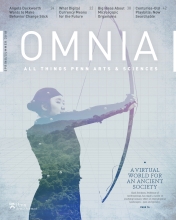Using Playing Cards to Revitalize Language and Promote Ecological Diversity
“In TEK, individuals are understood to be dependent on the environment and responsible for it, rather than objective observers,” says Alonso. “It’s a community-specific knowledge that comes from direct contact with the environment over time and is traditionally passed down from generation to generation.” She notes that regions around the world with the highest biodiversity are shaped by TEK-based management by indigenous people.
Alonso has repeatedly heard concern from the people she works with that the ability to recognize and steward hundreds of plant and animal species is being lost, along with tribal languages. A linguistic consultant for a company called Native Teaching Aids, she received a Penn Climate Action Grant to develop a TEK card game for an Anishinaabe group in Minnesota.
In the game, Mawinzo (“Picking Berries”), players collect berry cards to feed their tribe, and the player who feeds the most tribal members wins. Learning Ojibwe and gaining traditional ecological knowledge are necessary to advance in the game.
“Our games are designed for immersion in both language and ecology,” she says. “They’re educational but also really fun. They become a resource for schools, community groups, and families and are a great way to engage people of all ages who like games.”




